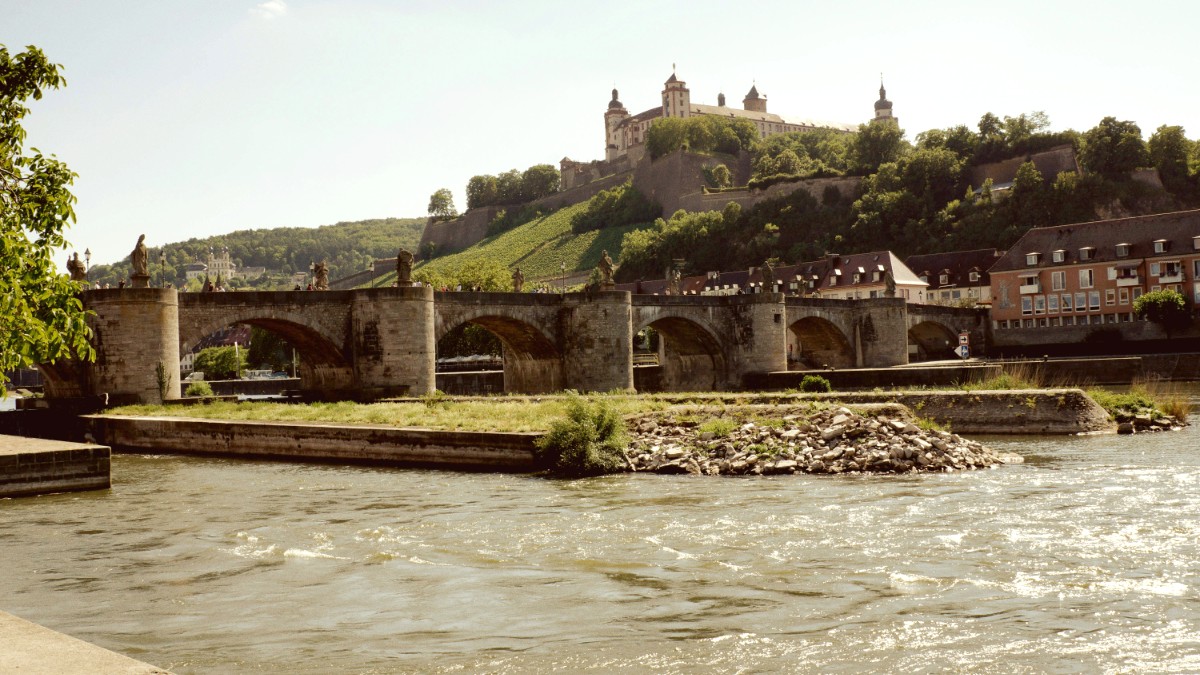
Bavaria, Germany
Walking through the opulent Würzburg Residence transports you to an era of princely power and artistic mastery.
Standing on the Old Main Bridge, wine in hand, gazing at Marienberg Fortress, connects centuries of tradition with simple, modern pleasures.
The city's resilience, evident in its meticulous post-war reconstruction, also inspires. Würzburg’s manageable size cultivates a more intimate connection.
Germany's precision in restoration alongside a warm, welcoming local charm becomes evident.
The Baroque splendor of the Residence and the artistry of Tilman Riemenschneider stand out.
A distinct regional character, different from Bavaria's broader image, emerges.
Traveler actions shape the future of destinations. Make a commitment to sustainable and respectful travel.
Pay attention to local customs, like appropriate volume in public spaces and punctuality.
When visiting religious sites, dress respectfully by covering your shoulders and knees.
Approach sites related to sensitive historical periods, like WWII, with appropriate solemnity.
Opt for trams and buses within the city to minimize your environmental footprint.
Utilize Germany's efficient recycling bins for paper, plastic, glass, and other waste.
Conscious use of water and electricity in hotels and guesthouses has positive effects.
Choose local shops, restaurants, and tour operators to ensure your spending benefits the community.
Be considerate of residents' privacy and daily routines, especially in residential areas.
Take the opportunity to learn about local perspectives and stories from Würzburg citizens.
Traveling with respect for local culture and environment enriches your own experience and contributes positively to the destination's future.
Würzburg serves as a gateway to further European exploration, with many exciting possibilities.
Continue your journey along the Romantic Road into Bavaria, visiting towns like Augsburg and ultimately reaching Neuschwanstein Castle.
Dive into the Franconian Wine Region, spending more time in charming wine villages like Iphofen, Volkach, or Sommerach.
Head south to the breathtaking Bavarian Alps for stunning mountain landscapes, hiking, and winter sports.
Würzburg's excellent train connections make it an ideal starting point for combining several regions.
Consider combining a city trip with a rural escape for a diverse itinerary.
Germany's well-developed transport infrastructure supports seamless transitions between regions.
Consult the Deutsche Bahn website for planning multi-city journeys.
Different seasons or experiences present new discoveries in Würzburg.
Return in late summer (late August/early September) to experience the lively Würzburg Wine Festival.
If you visited in summer, return in winter (late November/December) for the magical Würzburg Christmas Market and festive atmosphere.
Witness the vineyards and gardens in full bloom during spring (April/May) for a different scenic perspective.
Extend your travel learning with courses and experiences.
Enhance your travel photography skills with online courses from platforms like Skillshare.
Document your experiences and stories from Würzburg through a travel writing workshop.
Capture Würzburg's beauty through sketching or painting classes, focusing on its architecture or landscapes.
Continue your German language studies to deepen future interactions.
Explore more deeply into the history of Franconia and its unique role in Germany.
Learn more about Franconian wines and viticulture through online resources or local workshops.
Würzburg is just one part of a world full of wonders. Carry its memories as you plan your next adventure.